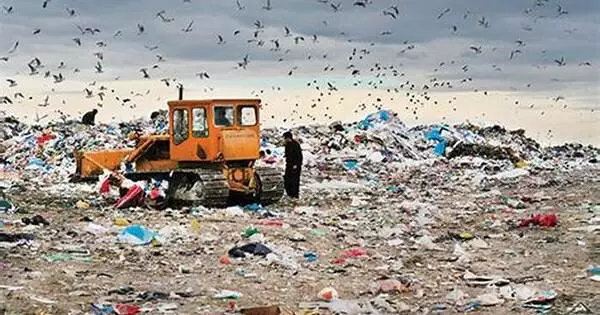Environmental dumping is the practice of exporting goods to another country while exploiting lax environmental regulations or lower environmental standards in the destination country. It is the practice of shipping waste (household waste, industrial/nuclear waste, etc.) across borders from one country to another.
The goal is to transport the waste to a country with less stringent environmental laws or laws that are not strictly enforced. The economic benefit of this practice is cheap waste disposal or recycling without violating the original country’s economic regulations. This can have a negative impact on the environment in the importing country, and it may be done to cut production costs or avoid stringent environmental regulations.
This historical dumping of hazardous waste was possible because less-developed countries did not always: 1) know what was being imported, 2) know what the hazards and trade-offs were, 3) have the enforcement structure in place to apprehend and halt imports, or 4) have the political consensus and independence required to protect their own national interests.
Key aspects of environmental dumping include:
- Lower Environmental Standards: To save money, companies may choose to relocate their production or manufacturing processes to countries with laxer environmental regulations. This can result in pollution and environmental degradation being transferred to the new location.
- Waste Disposal: Some businesses may export hazardous waste or byproducts to countries with less stringent waste disposal regulations. Improper disposal methods can pollute the soil, water, and air, harming ecosystems and human health.
- Resource Exploitation: In some cases, companies may exploit natural resources in countries with laxer environmental regulations, resulting in resource over-extraction or depletion in the absence of proper environmental management.
- Social and Economic Impacts: Environmental dumping can also have social and economic implications in the receiving country. It may result in health issues, loss of biodiversity, and damage to local communities that may not have the resources or regulations to mitigate these impacts.
International agreements and regulations aimed at promoting sustainable practices and preventing the transfer of environmental harm from one country to another are among the efforts to combat environmental dumping. However, enforcement can be difficult, and disparities in environmental standards between countries continue to pose obstacles to global environmental sustainability.
Governments, businesses, and international organizations all play critical roles in developing and enforcing policies that discourage environmental dumping and promote responsible and sustainable production practices around the world.
















